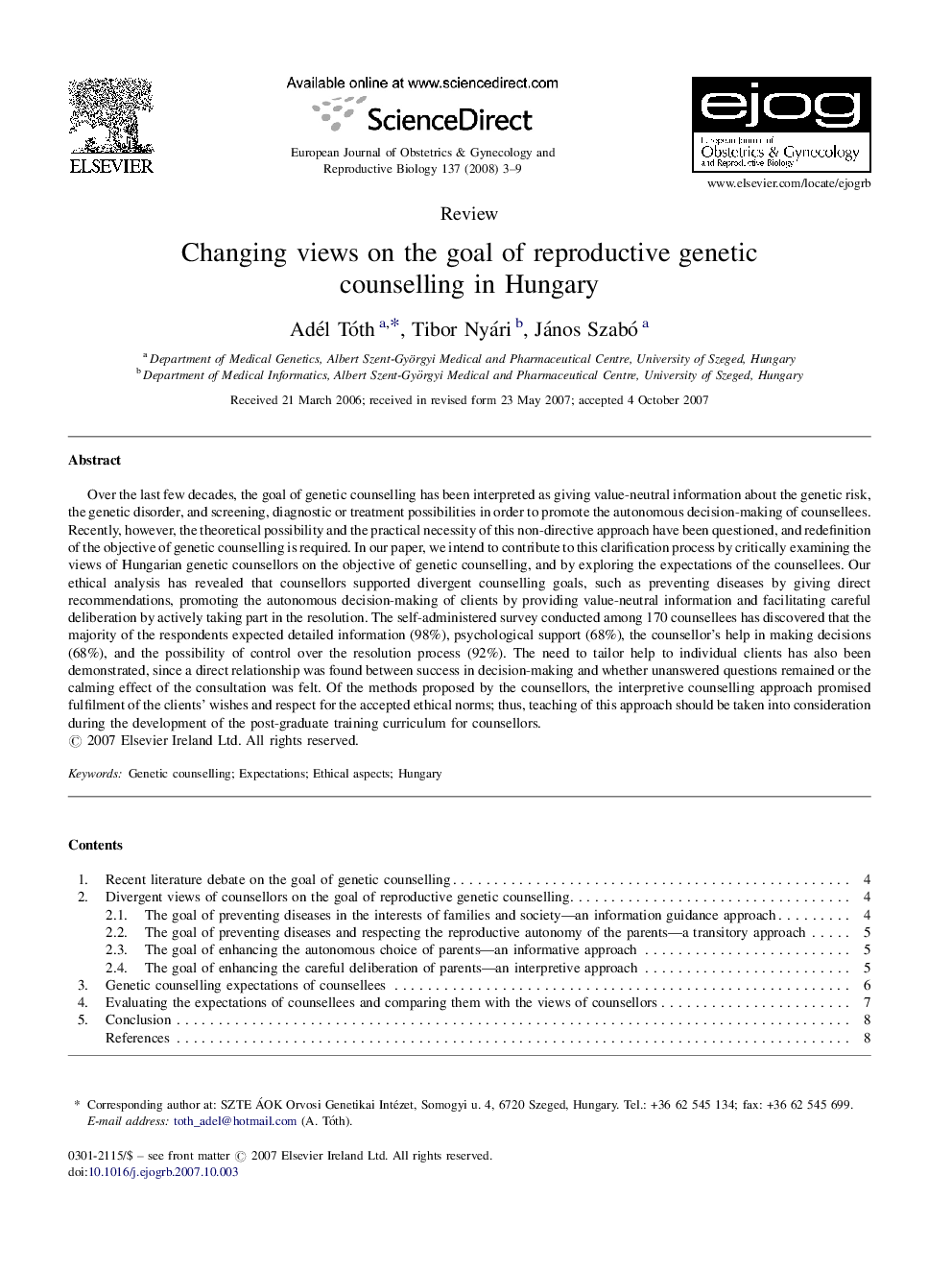| Article ID | Journal | Published Year | Pages | File Type |
|---|---|---|---|---|
| 3922327 | European Journal of Obstetrics & Gynecology and Reproductive Biology | 2008 | 7 Pages |
Over the last few decades, the goal of genetic counselling has been interpreted as giving value-neutral information about the genetic risk, the genetic disorder, and screening, diagnostic or treatment possibilities in order to promote the autonomous decision-making of counsellees. Recently, however, the theoretical possibility and the practical necessity of this non-directive approach have been questioned, and redefinition of the objective of genetic counselling is required. In our paper, we intend to contribute to this clarification process by critically examining the views of Hungarian genetic counsellors on the objective of genetic counselling, and by exploring the expectations of the counsellees. Our ethical analysis has revealed that counsellors supported divergent counselling goals, such as preventing diseases by giving direct recommendations, promoting the autonomous decision-making of clients by providing value-neutral information and facilitating careful deliberation by actively taking part in the resolution. The self-administered survey conducted among 170 counsellees has discovered that the majority of the respondents expected detailed information (98%), psychological support (68%), the counsellor's help in making decisions (68%), and the possibility of control over the resolution process (92%). The need to tailor help to individual clients has also been demonstrated, since a direct relationship was found between success in decision-making and whether unanswered questions remained or the calming effect of the consultation was felt. Of the methods proposed by the counsellors, the interpretive counselling approach promised fulfilment of the clients’ wishes and respect for the accepted ethical norms; thus, teaching of this approach should be taken into consideration during the development of the post-graduate training curriculum for counsellors.
